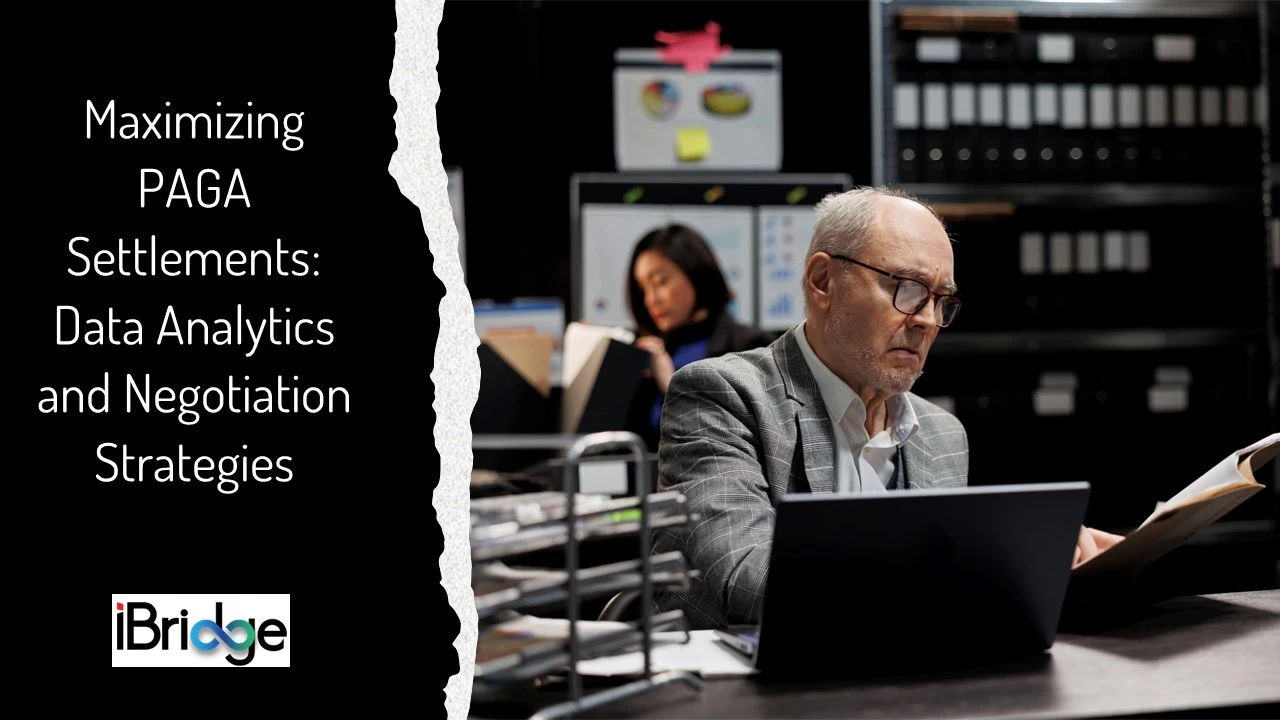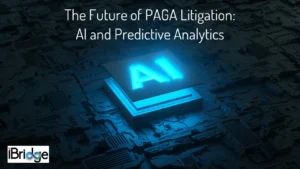Private Attorneys General Act (PAGA) cases in California have become a significant source of business litigation, often resulting in substantial settlements. For law firms, the challenge lies in identifying potential PAGA violations and negotiating settlements that deliver the best outcomes for their clients.
This article will explore how law firms can leverage data analytics to pinpoint potential PAGA violations and calculate optimal settlements. Additionally, we’ll delve into negotiation strategies strengthened by data-driven insights, ultimately maximizing PAGA settlements and delivering favorable results for employees and their legal representatives.

The Power of Data Analytics in PAGA Cases
Data analytics has emerged as a formidable tool in the legal profession, offering a strategic advantage in PAGA cases. Here’s how law firms can harness the power of data analytics to their advantage:
- Identifying Patterns of Non-Compliance: Data analytics can comb through extensive records to identify patterns of non-compliance with labor laws. For example, it can detect trends in wage and hour violations, missed breaks, or other labor code violations across multiple employees or locations. This data-driven approach allows law firms to build more robust cases by presenting evidence of systemic abuses.
- Accurate Damages Calculation: Accurately calculating damages is a pivotal aspect of PAGA litigation. Data analytics can assist in this regard by automatically calculating the owed wages, penalties, and interest based on the data collected. This eliminates human error and ensures that the settlement amount reflects the full extent of the violation.
- Strategic Resource Allocation: Data analytics can help law firms prioritize cases based on their potential impact. By analyzing data, law firms can identify patients with a higher likelihood of success and focus their resources on these cases, increasing their chances of achieving favorable settlements.
- Predictive Analytics: Predictive analytics takes data analysis to the next level by forecasting potential outcomes. Law firms can use predictive models to assess the likely result of a PAGA case, enabling them to make informed decisions about negotiation strategies and resource allocation.

Negotiation Strategies Backed by Data Insights
Negotiating PAGA settlements is a delicate process that requires a thorough understanding of the case, the parties involved, and the potential outcomes. Here are some negotiation strategies that benefit from data-driven insights:
- Know the Strength of Your Case: Data analytics can provide law firms with a clear understanding of the strength of their case. This knowledge empowers them during negotiations, allowing them to confidently assert their client’s position and demand a settlement that reflects the case’s merits.
- Benchmarking: Law firms can benchmark their settlement demands against industry standards by analyzing previous PAGA cases. This data-driven approach ensures that the markets are fair and reasonable, increasing the likelihood of a successful negotiation.
- Assessing Counterparty Risk: Data analytics can help law firms assess the defendant’s financial health and risk tolerance. This insight is crucial in tailoring negotiation strategies to the case’s circumstances. For example, if the defendant has a history of settling quickly to avoid prolonged litigation, the law firm can leverage this information to negotiate a favorable settlement.
- Scenario Analysis: Data analytics allows law firms to conduct scenario analysis, exploring negotiation outcomes based on varying settlement amounts and terms. This strategic approach enables law firms to anticipate counteroffers and adjust their negotiation tactics accordingly.

Case Study: Data-Driven PAGA Settlement Success
To illustrate the impact of data analytics in PAGA settlements, consider the following case study:
- Background: A law firm represented a group of employees who alleged widespread wage and hour violations by their employer, a chain of retail stores. The employees claimed they were routinely denied meals and rest breaks, resulting in unpaid wages and penalties.
- Data Analytics Approach: The law firm used data analytics to analyze employee time records, payroll data, and store schedules. They identified a consistent pattern of missed breaks across multiple locations and employees. The analytics also revealed that the potential damages, including unpaid wages and penalties, were substantial.
- Negotiation Strategy: Armed with these data-driven insights, the law firm approached the defendant with a demand backed by accurate calculations of the owed wages and penalties. They also highlighted the systemic nature of the violations, emphasizing the potential reputational damage to the defendant.
- Outcome: The defendant, recognizing the strength of the case and the potential financial consequences of protracted litigation, opted for a negotiated settlement. The law firm successfully secured a settlement that compensated the employees for their unpaid wages and included significant penalties for the defendant, all based on data-driven calculations.

Data analytics has become an invaluable asset for law firms navigating the complex landscape of PAGA litigation. By using data analytics to identify potential violations, calculate accurate damages, and inform negotiation strategies, law firms can significantly enhance their ability to secure favorable client settlements. In an era where data is king, leveraging data-driven insights is not just a competitive advantage; it’s necessary for law firms aiming to maximize PAGA settlements and deliver justice to employees who have experienced labor code violations. With the right data-driven approach, law firms can achieve outcomes that benefit all parties involved while upholding the principles of fairness and compliance with labor laws.
iBridge Solutions is a game-changer for PAGA law firms seeking innovative technology solutions and services. With a deep understanding of the intricate demands of Private Attorneys General Act (PAGA) litigation, iBridge offers tailored tools and expertise that empower law firms to streamline their investigations and documentation processes. Our comprehensive services include cutting-edge e-discovery solutions to identify critical evidence swiftly, data analytics to extract valuable insights from complex datasets, and state-of-the-art case management systems for efficient workflow organization.

Notably, iBridge has played an instrumental role in helping law firms complete over 100 PAGA cases in the last 12 months alone, a testament to our commitment to excellence and the tangible results they bring to the legal landscape. iBridge’s commitment to data security and ethical considerations ensures that PAGA law firms can harness technology’s full potential while maintaining the highest standards of confidentiality and compliance. With iBridge as a partner, PAGA law firms can confidently navigate the digital age of litigation, improving their effectiveness and ultimately achieving better outcomes for their clients.
Hi, this is Ethan Hayden, Legal Project Manager and Attorney at iBridge. We at iBridge specialize in helping law firms achieve better project efficiency by leveraging a unique combination of computing and human intelligence. By automating repetitive tasks and streamlining workflows, we free up valuable time for attorneys to focus on what they do best – providing quality legal services to their clients.
We welcome the opportunity to discuss how we can help your firm achieve its goals and improve its bottom line.
Contact Us
Reach out today to schedule a discussion with an iBridge team member to learn how we can help your business in terms of growth and digital transformation





